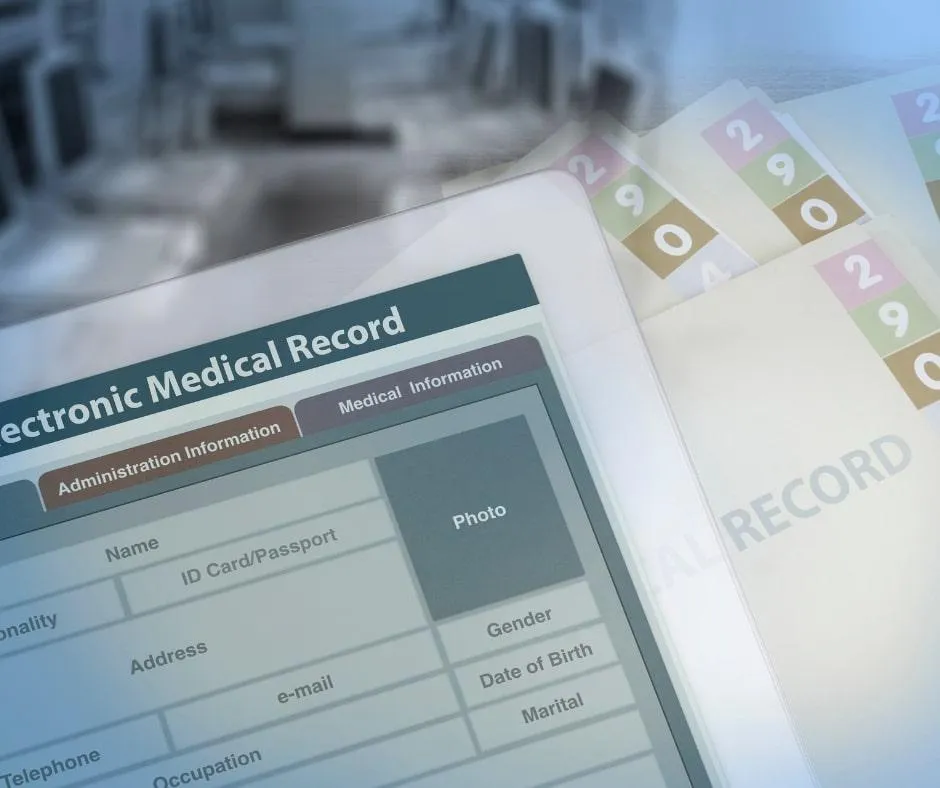Why a HIPAA Compliant CRM is Essential for EMR Transfer
October 14, 2021

If you’re not concerned or prioritizing HIPAA Compliance laws on your website or your CRM, you could be walking a thin line of fines and legal action.
You could be facing millions of dollars in fines for being out of compliance with the Health Insurance Portability and Accountability Act (HIPAA). To lessen the risk of being out of compliance, you need a customer relationship management system that follows the guidelines and keeps your practice and your patients’ information protected.
This is especially essential if you’re using Electronic Medical Record transfers through your CRM.
As a physician, surgeon, or medical provider, you may not know everything about HIPAA compliance, CRM, or EMR, and that’s expected! You went through years of medical training to become experts in your field of study; we do not expect you to be experts in these topics.
So how do you figure out what needs to be done to keep all your patient information protected and keep your practice in compliance?
What You Need: HIPAA Compliant CRM
Let us here at Ad Vital help you out! We will break down the importance of having a HIPAA Compliant CRM for EMR transfers and how we can flawlessly implement it into your system.
How do we do this? Our advanced system was made by surgeons for surgeons to help them bring in more clients and thrive in their practice!
But before we get into our CRM and EMR transfer tools, let’s take a closer look at HIPAA compliance.

HIPAA Compliance
It’s important to know what HIPAA actually means and does to protect patients and practices. The Health Insurance Portability and Accountability Act (HIPAA) was enacted in 1996. HIPAA itself has many working parts under its umbrella. Still, in short, it was created to hold healthcare systems and organizations accountable for health data and to ensure health information remains private and confidential.
As a healthcare provider, you most likely collect and store the following information:
Patient names, addresses, phone numbers, and other contact information
Patient email addresses
IP addresses (When they visit online and to remember their login information)
License plate information
Social security
Biometric data (Fingerprints for security purposes)
Health information, patient history
Medications, allergies, and surgeries
Insurance information
Place of work and emergency contact information
And more that haven’t made this list.
If you store this information, how do you do it? If it’s online, do you have a Customer Relationship Management system for Electronic Medical Record (EMR) transfers to protect this data safely?
Like we said above, if you’re not careful in protecting your patient information, you could be at risk for hacking, malware, and millions of dollars in fines if out of compliance.
It’s time to take more consideration into using a HIPAA-compliant CRM for EMR transfers.
Protect Your Patient Information & Practice
In our previous article, “How Ad Vital Decreases Mistakes In Your EMR,” we went in-depth as to how our system streamlines your productivity while also decreasing mistakes!
Our EMR integration takes over and schedules appointments, sends reminders, automatic text & email updates, patient communication, and more!
We optimize organization and efficiency to help your practice run smoothly. In addition, our systems are HIPAA compliant, so you don’t have to worry about potential fines, hacking and damaging consequences.
Your patient data and information will be secured and stored safely in our systems, and that allows you peace of mind to continue helping and healing patients the right way!
Our all-in-one solution replaces dozens of software and combines everything into one simple platform.
To learn more about our Ad Vital CRM, we encourage you to browse our website and schedule your FREE demo today!
